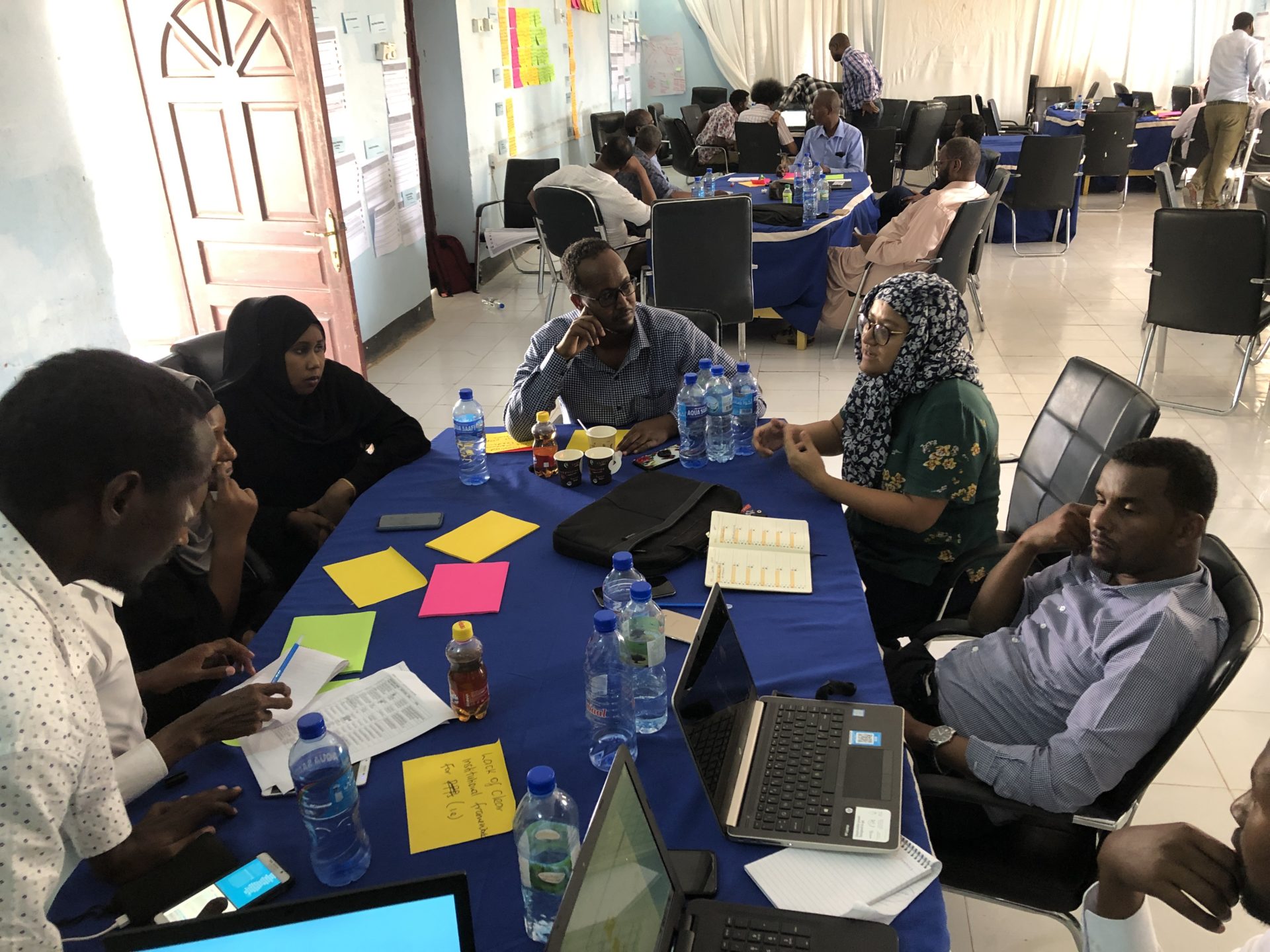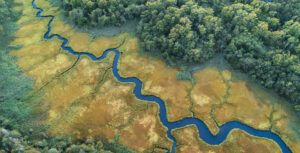- SIWI – Leading expert in water governance
- /
- Latest
- /
- Somalia WASH stakholders analysed some climate change and emergency criteria when implementing WASH BAT
Somalia WASH stakholders analysed some climate change and emergency criteria when implementing WASH BAT

With the objectives to improve the efficiency of the WASH sector in Puntland State of Somalia (in Garowe), WASH governance experts were recently invited by UNICEF to moderate the WASH BAT workshop (October 2019). The common and key areas that came up as needing to be strengthened were: accountability mechanisms, regulations (inter-ministerial regulatory body/working group), coordination, advocacy for sub-sector policy and strategy, planning, capacity development, and financing.
Puntland State of Somalia was established in August 1998 as a semi-autonomous state. The region has a population of 2.5 million, of whom about 60% are pastoralists. Apart from major big urban towns and cities, Puntland generally has a scattered and dispersed population, mostly living in small villages, some of which are difficult to access because of poor infrastructure or insecurity.
Many people in Puntland have no access to clean and adequate water supplies. Puntland suffers from an overall lack of permanent and reliable surface water. Rural areas and Internally Displace Persons (IDP) camps have high levels of open defecation and poor hygiene practices creating a considerable risk for water borne disease outbreaks, especially Cholera as well as the risk of transmission of other deadly diseases such as Polio, Acute Respiratory Infection (ARI), and malnutrition. The quality of groundwater is generally poor as it is very hard and saline.
In 2014, the Puntland Government passed legislation endorsing a Decentralization Policy and a roadmap that provided the political, administrative, and financial scope to decentralize service delivery in prioritized sectors; including health, education, water/sanitation, and roads. However, the WASH governance public institutional setup, largely remains under-resourced in terms of human resources, finance, and logistics and lacks a legislative and institutional framework.
WASH BAT was implemented in Puntland, to identify these challenges and bottlenecks that the sector is currently facing and enable the development of a coherent action plan through identification and prioritization of activities to remove those bottlenecks.
The WASH BAT tool helps to systematically identify factors that hinder sustainable service delivery and make it difficult to reach WASH targets. Stakeholders can then define activities to remove the root causes. The tool was created and developed by UNICEF, with inputs from SIWI and other global sector partners. The overall aim of the WASH BAT process is to strengthen the sector strategy/plans and elevate the efficiency of WASH sector resources to achieve more sustainable and equitable outcomes.
During a 3-days workshop in Garowe, Somalia in early October 2019, 56 participants, representing different ministries of Puntland (Health, Planning, Education, Finance, Local Government, Water, Women Development & Family Affairs), utilities (Private Company – Private Public Partnership), donor (UNICEF) and NGOs (international and national) were engaged to conduct the analysis. Through this process a list of priorities to strengthen the WASH systems for Puntland State were identified. The focus (scope) concentrated on five sub-sectors; urban water, urban sanitation, rural water, rural sanitation, and WASH in institutions.
The workshop activity began with the Accountability Mapping exercise by using a accountability triangle where participants were able to identify a) the ideal roles and responsibilities of different actors within the sector, and b) the gaps in these linkages and roles that hinder optimal sector development. The participants found this, an important starting point to the WASH BAT exercise to map the stakeholders, their roles and the linkages which helped them during the discussions around criteria, identifying bottlenecks and causes, and planning the activities and the responsible actors.

Some of the additional criteria which was developed for this WASH BAT in reference to Emergency, Fragile or Climate Change-Affected Contexts (UNICEF, Global WASH Cluster, Oxford University, SIWI) were included in this analysis, which allow for the prioritization of activities on studies and evidences on climate change, and its impact on WASH, advocacy on government fund allocation, specifically for emergency response.
The common and key areas that came up as needing to be strengthened were; accountability mechanisms, regulations (inter-ministerial regulatory body/working group), coordination, advocacy for sub-sector policy and strategy, planning, capacity development, and financing.
From the conclusions of both exercises, some measures were proposed, with prioritization for the most critical 26 activities and an action plan developed for them. Additional meetings will be needed to harmonize the action plan across sub-sectors, allocating responsibilities and complete the budget and financing.
More information can be found here: http://www.washbat.org
Most recent

SIWI’s endorsement of the COP29 Declaration on Water for Climate Action
- Water and climate
- World Water Week
- Water governance

Women hold the key to building climate resilience
- Gender and water
- Resilience through water

SIWI-WASH experts join IVL

Water for Climate in Baku

SIWI Amman hosts Ghana representatives for WASH exposure visit in Jordan




